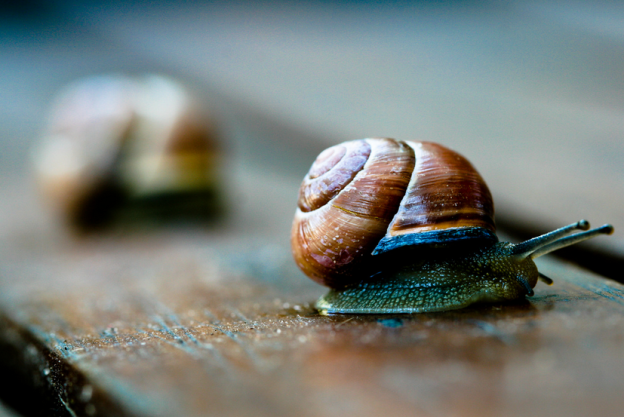Are you a writer who needs more time to put words on the page? Does your heart sink when you see tweets or Facebook statuses like “Squeezed in 600 words during my lunch break” or “Added 1000+ more words to my MS in 1 hour,” because it takes you longer to reach either milestone?
If you are, you’re not alone. I’ve run into the same situation many times. Belittling ourselves, however, doesn’t make us feel better about our “lack of speed.” What will is embracing our unique writing methods while recognizing what needs fine-tuning.
Below are various bits of advice about balancing productivity with individuality that I’ve collected over time. Some are suggestions from fellow writers. Others are lessons I’ve learned on my own. Regardless, I hope you find them as helpful or reassuring as I have.
Before Your Writing Sessions
Organize yourself ahead of time. Working on a novel? Try drafting an outline when you get the initial idea, or note the bare bones of a scene on index cards. How about a blog article? Maybe type up keywords for each point you want to hit during your piece. I love the Status Update tool on Goodreads for this reason. It helps me recall my observations about a book when I’m ready to write the review.
Prepare your rituals before you sit down. Whether you need a snack or drink, or want a candle or other object to set the ambiance, get everything in order before you settle in to write. That way, your muse knows it’s time to get started.
During Your Writing Sessions
Cut out possible distractions. Checking email, scrolling through social media feeds, or going on research tangents can stall a writer’s efficiency. Save your online time for after your writing session. If you have trouble with this, use tools like Focus Writer or Cold Turkey to hide or block out desktop icons and internet windows.
If you get stuck, switch to another scene or project. If you’re stalling with a certain scene or section of the piece you’re writing, concentrate on another part that’s clearer in your mind. This “skip-around” or “writercopter” method has actually helped me flesh out my current WIP more effectively than writing chronologically. If it doesn’t work for you, try switching to a different writing project or something else artistic (drawing, painting, knitting, etc.). You may find that the subconscious has a way of solving creative problems when we temporarily shift our focus.
Turn off your “inner editor.” Do you search through synonyms to find the right word while writing a first draft? Or revise a previously written section instead of completing a new one? That’s your “inner editor” speaking. Ignoring it isn’t easy, but doing so can lead to progress. Try keeping a list of possible changes you can make later during Draft #2, or highlighting words or phrases that aren’t quite perfect. Then, continue writing.
Know your limits. There comes a point during each writing session when you’ve given everything you’ve got. Unless you have a deadline to meet, don’t push yourself if you’re too tired or emotionally drained. Turn off the laptop or put away the notebook, and rest. Consider it a well-deserved recharge for the next day.
After (and Between) Writing Sessions
Celebrate your milestones. Did you finish a chapter or a challenging scene? Are you proud of a particular passage? Share whatever accomplishments excite you however you wish, with anyone who supports your work. You’ll feel good about yourself and more excited about your writing as a result.
Compare yourself to only one writer – you. It’s human nature to envy others and then wallow our “have-nots.” (Remember the examples in the opening paragraph?) What we should do instead is embrace our “haves.” Instead of comparing yourself negatively to other writers, ask yourself, “Will I benefit more from discouragement or empowerment?” The answer should be clear; and the empowerment can range from a simple reminder that your methods work for you, to gradual changes to your writing process that boost your efficiency and self-esteem.
Recognize what’s within your control. Outside factors can hinder progress, especially if you don’t write full time. For example, we can’t ignore priorities we may love as much (family life, friends) or need for financial reasons (day jobs). Don’t fight the time you have to spend away from writing. Accept it – or enjoy it, if you can – and you’ll alleviate some of the pressure you put on yourself.
Be kind to yourself. Don’t feel obligated to pull all-nighters, skip meals, or neglect other areas of self-care. Doing so will heighten your stress levels and can possibly lead to creative burn-out. Leave plenty of time to take care of yourself through exercise, meditation, a good night’s sleep – you get the idea. Your mind and body will thank you for it later.
The Golden Rule of Writing
Not all of the above suggestions will work for you. That’s OK. So, in closing, I’d like to offer what I’m calling The Golden Rule of Writing:
Do what works for YOU. Your writing practice is unique and worth celebrating. It may not be ideal, depending on your habits and personal circumstances. However, as long as you make time for writing, focus during each session, and open your mind to ways of improving your practice, you’re already succeeding. So, be grateful for acknowledging your passion for writing, and be proud for acting on it!
What changes have helped you improve your writing productivity over time? How do you embrace your writing practice and celebrate your achievements? Let us know by commenting below!
Sara Letourneau is a Massachusetts-based writer who practices joy and versatility in her work. In addition to writing a fantasy novel, she reviews tea at A Bibliophile’s Reverie, leads the “Theme: A Story’s Soul” column at DIY MFA, and has published poetry in several online literary journals. Learn more about Sara and her work at her blog, Facebook, and Twitter.
Huge thanks to Sara Letorurneau for joining us today! f you’re interested in writing a guest post for my blog in the future, email me at wendyluwrites@gmail.com with your pitch.











Some great ideas. I need to get my ideas organized if I’m to write quicker than my usual molasses pace.
Thanks, Susan! Let me know if you try any of those ideas and find them helpful. :)
I know what you mean, Susan! I’m somewhat of a “plontser” (pantser + plotter), which somehow makes me a lot slower than if I were strictly a pantser OR a plotter. I agree, though: Sara’s thoughts and advice are super helpful!
Also, thanks very much again, Wendy, for having me here for a guest post! :)
Thank YOU, Sara! It’s my pleasure, and I’ve loved having your voice and insight here :)
Some really helpful tips, Sara:)). I particularly like the one about not flicking between social media and your m/s – once I’m plugged into my own world, I think the house could probably fall down around my ears…
However, I do find my back demands I take regular breaks! You’re also spot on when advising not to get too hung up on correcting the first draft – that’s what rewrites are for…
Thanks, Sarah! And I agree, breaks are important, too. They help us refocus and move around, especially during longer writing sessions that might be draining. I try to take breaks from writing once every hour or 90 minutes, even if it’s just to make a new cup of tea or to move around a little.
Argh, yes…I’m a total social media addict and can’t stay away from Twitter (or Facebook or Instagram, for that matter!). I usually end up having to use StayFocusd, a Google Chrome extension that blocks any website you want for a set amount of time. I think it’s great you don’t have to use those kinds of apps since you can stay so focused on your own!
I’ve come from A to Z blogging. Wow, what a beautiful blog. It is so esthetically pleasing.
Such good tips from Sara Letourneau. I need to consider getting myself organized.
Thanks, Ann! I hope the tips help. :)
Hi Ann! Thanks for stopping by, and I appreciate the kind words about my blog :)